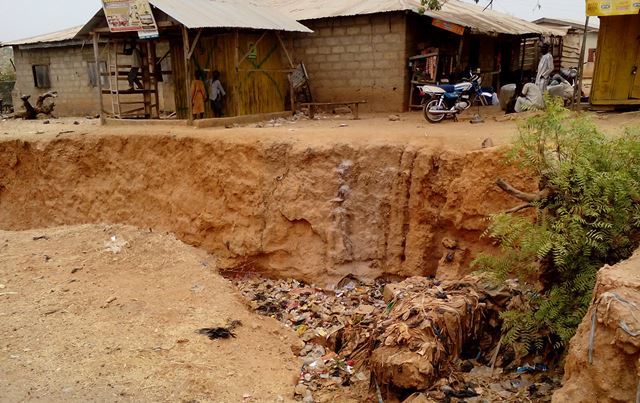by Usman Alabi
Look around you as a citizen, especially those of us who are in erosion prone areas or places that have suffered from flooding in recent years and still suffering from such issues, can you point to any project that was funded by the ecological fund office to address this challenge?
The ecological fund is an intervention fund established to address multifarious ecological problems plaguing communities across the country. The fund receives 2% of the Federation Account and it is a first line charge.
But recently, the ecological fund rather than being used for the sole purpose for which it was created, has become the last lender of resort to the Federal government. There were reports that funds meant for the ecological projects were diverted by the federal government to other areas. According to the auditor general’s report for 2016, the federal government diverted N28bn from the ecological fund in 2016. According to the report, the total amount received into the fund was N48,601,928,311.08, and the N28bn removed from the fund was about 58% of the total funds.
The report also stated that there were various withdrawals from the fund, but the arrangement for repayment was unclear, especially given the fact that the 2017 budget did not include any appropriations for the repayment of these borrowings. Also in the previous administration, there were reports of diversion of ecological funds, states under the immediate past President Jonathan shared about N2bn ecological funds in 2013. These does not show the genuineness of the government to tackle ecological challenges experienced across the country, from the lake chad basin, to the threat of the Sahara, down to the erosion challenges experienced both in the south east, and the flooding in the middle belt.
Earlier this year, the ecological fund office stated that the total amount requested by various communities and groups for erosion and flooding from the ecological fund office is now over N1.1tn, but also claimed that ecological fund office was only getting between N12bn and N15bn quarterly to address erosion and flood problems in different parts of the country. As at March, 2018, she said the agency had completed 47 projects, awarded 88 while 41 were still ongoing. The question then is, where are all these projects? Can they be monitored by independent bodies? What is the criteria for their selection?
In his Democracy day address this year, the President said 73 ecological fund projects for the control of gully erosion in different communities across all geopolitical zones have been completed in the last three years, while 53 other projects are ongoing. The question still remains, Mr President, where are these projects? Why are we still having plethora of ecological problems across the country, especially flooding? Apart from this, there are ecological funds projects across the country that have been abandoned or uncompleted with no explanation
The ecological fund has become a slush fund not only for our political office holders, but also for some other government agencies who reportedly borrow funds from the agency to finance their agency projects. Does it mean that funds just lie away in the agency account with no projects to execute? It also means that the agency is not serious in its mission to ameliorate ecological problems across the country. A major problem again with the fund is the fact that it is hidden under the Presidency which makes it nothing more than a cash cow for the crème de la crème in government, this particularly makes transparency and accountability difficult. The ecological funds website has no detailed specifics on the projects they are implementing across the country, as well as the ones that have been implemented. Apart from this, they are shielded away from public scrutiny. The amount of money that gets to them on quarterly basis is never made public.
There is need to audit the ecological fund office from inception till date, there is also need to make transparent the process of nominating the project to be implemented, as there is need for people to be involved in the identification of the project to be implemented as well as tracking of the project in the course of implementation.
